Ghana, officially the Republic of Ghana, is a West African nation bordering the Gulf of Guinea, Ivory Coast, Burkina Faso, and Togo. Covering 239,567 km2, it encompasses diverse ecologies. With a population of nearly 35 million, it's the second-most populous West African country. Accra is the capital and largest city. Ghana holds historical significance as the first sub-Saharan African colony to achieve independence in 1957, led by The Big Six.
1900: Anglo-Ashanti War
In 1900, the Kingdom of Ashanti lost the War of the Golden Stool after previously defeating the British some times in the Anglo-Ashanti wars.
1911: Publication of 'Ethiopia Unbound' by J.E. Casely Hayford
In 1911, J. E. Casely Hayford published 'Ethiopia Unbound', a notable work of Ghanaian literature.
1946: Gold Coast Legislative Election
In 1946, the Gold Coast legislative election took place.
1947: United Gold Coast Convention Formed
In 1947, the newly formed United Gold Coast Convention, led by "The Big Six," called for "self-government within the shortest possible time" after the 1946 Gold Coast legislative election.
1948: Gold Coast Film Unit Setup
In 1948, the Gold Coast Film Unit was established within the Information Services Department.
1949: Convention People's Party Formed
In 1949, Kwame Nkrumah formed the Convention People's Party, advocating for immediate self-government and initiating non-violent protests against British authorities.
1951: Nkrumah Elected to Parliament
In the Gold Coast's 1951 general election, Kwame Nkrumah was elected to Parliament and released from prison.
1952: Nkrumah Becomes Prime Minister
In 1952, Kwame Nkrumah became prime minister of the Gold Coast and began a policy of Africanization.
1954: Ghana Competes in Commonwealth Games
Since 1954, Ghana has been competing in the Commonwealth Games, sending athletes to every edition except in 1986.
March 6, 1957: Ghana's Independence
On March 6, 1957, the Gold Coast, Ashanti, the Northern Territories, and British Togoland were unified as the independent dominion of Ghana within the British Commonwealth under the Ghana Independence Act 1957. The current flag of Ghana also dates back to this unification.
March 1957: Ghana Achieves Independence
In March 1957, Ghana became the first colony in Sub-Saharan Africa to achieve sovereignty, marking its independence. Under President Kwame Nkrumah, Ghana became influential in decolonization efforts and the Pan-African movement.
1957: Nkrumah Leads Ghana
From 1957 to 1966, Kwame Nkrumah led Ghana as the country's first prime minister and president.
1957: Ghana Achieves Sovereignty
In 1957, Ghana became the first colony in Sub-Saharan Africa to achieve sovereignty, under the leadership of The Big Six.
1957: Ghana Armed Forces Consist of Headquarters, Support Services and Infantry Battalions
In 1957, the Ghana Armed Forces (GAF) comprised its headquarters, support services, three infantry battalions, and a reconnaissance squadron equipped with armoured vehicles.
July 1960: Ghana Declared a Republic
In July 1960, following the Ghanaian constitutional referendum and presidential election, Nkrumah declared Ghana a republic and assumed the presidency.
1961: Establishment of 4th and 5th Battalions
In 1961, the 4th and 5th Battalions of the Ghana Armed Forces were established, contributing to President Nkrumah's ambition to rapidly expand the GAF.
1963: Parachute Airborne Unit Raised
In 1963, a parachute airborne unit was raised, which would later become the 6th Battalion of the Ghana Armed Forces in 1964.
1964: Ghana Becomes a One-Party State
In 1964, a constitutional amendment transformed Ghana into a one-party state, with Nkrumah serving as president for life of both the nation and the party.
1964: Establishment of 6th Battalion
In 1964, the 6th Battalion of the Ghana Armed Forces was established, originating from a parachute airborne unit initially raised in 1963.
1965: Akosombo Dam Built
In 1965, the Akosombo Dam was built on the Volta River and it provides hydropower to Ghana.
February 1966: Nkrumah's Government Overthrown
In February 1966, while Nkrumah was abroad, his government was overthrown in a coup led by Colonel Emmanuel Kwasi Kotoka and Brigadier Akwasi Afrifa, resulting in the formation of the National Liberation Council.
1966: End of Nkrumah's Leadership
From 1957 to 1966, Kwame Nkrumah led Ghana as the country's first prime minister and president.
1966: Military and Civilian Governments
From 1966, Ghana was ruled by a series of alternating military and civilian governments, often affected by economic instabilities.
1968: Publication of 'The Beautyful Ones Are Not Yet Born' by Ayi Kwei Armah
In 1968, Ayi Kwei Armah published 'The Beautyful Ones Are Not Yet Born', a novel that gained international acclaim.
1969: Ghana Aliens Compliance Order
In 1969, Prime Minister Kofi Abrefa Busia enacted the "Ghana Aliens Compliance Order," leading to the deportation of over 3,000,000 aliens and illegal immigrants by the Border Guard Unit in three months, who then made up 20% of the population.
1970: Fertility Rate Decline
In 1970, the United Nations reported a fertility rate of 6.95 live births per woman in Ghana.
1981: Rawlings Takes Power
In 1981, Flight Lieutenant Jerry John Rawlings of the Provisional National Defence Council came to power in Ghana.
1986: Ghana does not Participate in Commonwealth Games
In 1986, Ghana did not send athletes to the Commonwealth Games.
1992: Launch of Cellular Mobile Network
In 1992, Ghana launched a cellular mobile network.
1992: New Constitution
In 1992, a new constitution restoring multi-party system politics was promulgated in Ghana, and Rawlings was elected in the presidential election.
1992: Press Freedoms Restored
In 1992, press freedoms were restored in Ghana, and Chapter 12 of the 1992 Constitution guaranteed freedom of the press and independence of the media, while Chapter 2 prohibited censorship.
1992: Presidential and Parliamentary Elections
In late 1992, presidential and parliamentary elections were held, preceding the Fourth Republic of Ghana.
January 1993: Fourth Republic of Ghana
In January 1993, the military government gave way to the Fourth Republic of Ghana after presidential and parliamentary elections in late 1992.
1993: Stable Government
Since 1993, Ghana has maintained one of the freest and most stable governments on the African continent.
1994: Tribal War in Northern Ghana
In 1994, a tribal war in Northern Ghana resulted in the deaths of between 1,000 and 2,000 people and displaced 150,000 people.
1996: Rawlings Re-elected
In 1996, Rawlings was re-elected in the general election.
2000: Decreased Tensions Between Media and Government
After the election in 2000 of Kufuor, tensions between the private media and the government decreased. Kufuor supported press freedom and repealed a libel law, and maintained that the media had to act responsibly.
2000: General Election
In 2000, Ghana held a general election.
2000: Fertility Rate Decline
In 2000, the fertility rate in Ghana was 3.99.
January 2001: Kufuor Becomes President
On January 7, 2001, John Kufuor of the New Patriotic Party became president of Ghana.
2004: Kufuor Re-elected
In 2004, John Kufuor was re-elected, serving two terms as president of Ghana.
2005: Ghana Becomes Associate Member of Organisation Internationale de la Francophonie
Since 2005, Ghana has been an associate member of the Organisation internationale de la Francophonie. In 2005, more than 350,000 Ghanaian children studied French in schools. Since then, its status has been progressively updated to a mandatory language in every junior high school, and it is in the process of becoming an official language.
2007: Discovery of Jubilee Oil Field
In 2007, the Jubilee Oil Field, containing up to 3 billion barrels of sweet crude oil, was discovered in Ghana.
2008: Mills Wins Election
In 2008, Nana Akufo-Addo was defeated in the general election by John Atta Mills.
2009: Ghana's Tourism Ranking by the World Economic Forum
In 2009, Ghana's ranking as a tourist destination according to the World Economic Forum was two places lower than in 2010.
2009: Publication of 'Tail of the Blue Bird' by Nii Ayikwei Parkes
In 2009, Nii Ayikwei Parkes published 'Tail of the Blue Bird', a book which garnered international acclaim.
September 2010: President Mills visits China
In September 2010, President John Atta Mills of Ghana made an official visit to China, where he and China's President Hu Jintao commemorated the 50th anniversary of diplomatic relations between the two countries.
2010: Physician Availability in Ghana
In 2010, Ghana had 0.1 physicians per 1,000 people.
2010: Ghana Immigration Service Report on Migrants
In 2010, the Ghana Immigration Service reported that 14.6% (3.1 million) of Ghana's population consisted of economic and illegal immigrants, predominantly from Nigeria, Burkina Faso, Togo, and Mali.
2010: Ghana's Tourism Ranking by the World Economic Forum
In 2010, the World Economic Forum ranked Ghana 108th out of 139 countries as a tourist destination, a rise of two places from the 2009 rankings. The survey also underpinned the high foreign exchange earned by tourism in the country.
2010: Fertility Rate Decline
In 2010, the fertility rate in Ghana was 3.28, with 2.78 in urban regions and 3.94 in rural regions.
2010: Literacy Rate for Ages 15-24
In 2010, the literacy rate for individuals aged 15–24 in Ghana was 81%, with 82% for males and 80% for females.
2010: Ghana's Ethnic Groups
The 2010 census reported that the largest ethnic groups in Ghana are the Akan (47.3%), the Mole-Dagbani (18.5%), the Ewe (13.9%), the Ga-Dangme (7.4%), the Gurma (5.7%) and the Guan (3.7%).
November 2011: China's Vice-Chairman Zhou Tienong visits Ghana
In November 2011, China's Vice-Chairman of the Standing Committee of the National People's Congress, Zhou Tienong, conducted an official visit to Ghana and met with President John Mahama, reciprocating Ghana's earlier visit to China.
2011: Hospital Bed Availability in Ghana
As of 2011, Ghana had 0.9 hospital beds per 1,000 people.
2011: Ghana Ranked Among the Most Friendly Countries
In 2011, Forbes magazine ranked Ghana as the 11th most friendly country in the world, based on a 2010 survey of travelers, making it the highest-ranked African country in the survey.
2011: Tourist Arrivals in Ghana
In 2011, Ghana welcomed 1,087,000 tourists, with arrivals including South Americans, Asians, Europeans, and North Americans, drawn to attractions such as waterfalls, beaches, and historical sites.
2011: Decline in Drug Seizures
In 2011, drug seizures saw a decline in Ghana, indicating that drug cartels are using new methods in narcotics production and exportation to evade Ghanaian security agencies.
July 2012: Mahama Becomes President
In July 2012, John Mahama became president of Ghana following the death of John Atta Mills.
2012: Pew Research Report on Islam in Ghana
According to a 2012 report by Pew Research, 51% of Muslims in Ghana are followers of Sunni Islam, approximately 16% belong to the Ahmadiyya movement, and around 8% identify with Shia Islam, while the remainder are non-denominational Muslims.
2012: HIV/AIDS Prevalence
As of 2012, the HIV/AIDS prevalence in Ghana was estimated at 1.40% among adults aged 15–49.
2012: Poverty in Rural vs. Urban Areas
Between 2012 and 2013, 38% of rural dwellers in Ghana were experiencing poverty, whereas only 11% of urban dwellers were.
2012: Ghana's Governance Ranking
In 2012, Ghana ranked seventh in the Ibrahim Index of African Governance and fifth in the Fragile States Index, reflecting its political stability in Africa.
2012: Ghana Chairs Comsats
In 2012, Ghana was elected to chair the Commission on Science and Technology for Sustainable Development in the South (Comsats).
2012: Ozwald Boateng's African Print Suits Collection
In 2012, Ghanaian-British designer Ozwald Boateng introduced African print suits in his collection, contributing to the global interest in African prints.
2012: Ghanaian Nationals Covered by National Health Insurance Scheme (NHIS)
In 2012, over 12 million Ghanaian nationals were covered by the National Health Insurance Scheme (NHIS), Ghana's universal health care system.
2012: Fragile States Index Ranking
The 2012 Fragile States Index indicated that Ghana is ranked the 67th-least fragile state in the world and the fifth-least fragile state in Africa.
2013: Pew Research Center Survey on Homosexuality
According to a 2013 survey by the Pew Research Center, 96% of Ghanaians believe that homosexuality should not be accepted by society.
2013: Poverty in Rural vs. Urban Areas
Between 2012 and 2013, 38% of rural dwellers in Ghana were experiencing poverty, whereas only 11% of urban dwellers were.
2013: Mass Deportation of Illegal Miners
In 2013, Ghana conducted a mass deportation of illegal miners, with over 4,000 of them being Chinese nationals.
2013: Iranian President Ahmadinejad meets with Mahama
In 2013, Iranian President Mahmoud Ahmadinejad met with President Mahama in Ghana to discuss strengthening the Non-Aligned Movement and co-chair a bilateral meeting between Ghana and Iran at Flagstaff House.
2013: Bank of Ghana Circulates Renminbi
In 2013, the Bank of Ghana began circulating the Chinese yuan renminbi throughout Ghanaian state-owned banks and to the Ghana public as hard currency alongside the national Ghanaian cedi for second national trade currency.
2013: UN Highlights West Africa's Weak Border Control
In 2013, the UN chief of the Office on Drugs and Crime stated that West Africa, including Ghana, has completely weak border controls which allows drug cartels from Colombia and Latin America to use Africa as a way to reach Europe.
2013: Infant Mortality Rate
In 2013, the infant mortality rate in Ghana was 39 per 1,000 live births.
2014: Manufacture of Urban Electric Cars
Since 2014, urban electric cars have been manufactured in Ghana, marking a step towards developing its primary manufacturing economy.
2015: Electricity Shortages Lead to Dumsor
In 2015, "shortages" of electricity in Ghana led to 'dumsor' (persistent, irregular, and unpredictable electric power outages), increasing the interest in renewables.
2015: Ghana Gold Production
In 2015, Ghana produced 88 metric tonnes of gold.
2015: Plans to Launch National Security Observational Satellite
In 2015, the Ghana Space Science and Technology Centre (GSSTC) and Ghana Space Agency (GhsA) worked to have a national security observational satellite launched into orbit.
2016: Akufo-Addo Becomes President
As a result of the 2016 general election, Nana Akufo-Addo became president of Ghana.
2016: Ghana Signs Paris Agreement
Ghana signed the Paris Agreement in 2016.
2016: Electricity Shortages Lead to Dumsor
In 2016, "shortages" of electricity in Ghana led to 'dumsor' (persistent, irregular, and unpredictable electric power outages), increasing the interest in renewables.
2016: Life Expectancy at Birth Estimated by WHO
In 2016, the World Health Organization (WHO) estimated life expectancy at birth in Ghana to be 62 years for men and 64 years for women.
January 2017: Akufo-Addo Inauguration
On January 7, 2017, Nana Akufo-Addo became president of Ghana.
September 2017: Free Senior High Education
From September 2017 into the 2018 academic year, senior high school education became free in Ghana.
2017: Free Secondary-School Initiative Started
Ghana started a free secondary-school initiative in 2017, which the proceeds from the issued social and green bonds in 2021 would help to forge ahead.
2017: Upward Trend in Politically Motivated Incidents
In 2017, Ghana experienced an upward trend in incidents motivated by political grievances, despite being a relatively peaceful country in the region.
2017: Fertility Rate Decline
In 2017, the United Nations reported a fertility rate of 3.93 live births per woman in Ghana.
2018: Transparency International's Corruption Perceptions Index
According to Transparency International's Corruption Perceptions Index of 2018, Ghana was ranked 78th out of 180 countries, with a score of 41, based on perceived levels of public sector corruption.
2018: Ghana's Population Age Demographics
In 2018, approximately 29% of Ghana's population was under the age of 15, while 57.8% were between 15 and 64 years old.
2018: Free Senior High Education
In the academic year of 2017/2018, senior high education became free in Ghana.
2019: Surplus of Electricity
As of 2019, Ghana has a surplus of electricity.
2019: Ghana Surpasses South Africa in Gold Production
As of 2019, Ghana was the 7th largest producer of gold in the world, producing ~140 tonnes that year, surpassing South Africa in output for the first time, making Ghana the largest gold producer in Africa.
2020: Emission Reduction Target
Ghana aims to avoid 64 million metric tons of greenhouse gas emissions by 2030, compared to a business-as-usual scenario for 2020-2030.
2020: Ghana Vision 2020 Target
Ghana's economic plan target known as the "Ghana Vision 2020" envisions Ghana as the first African country to become a developed country between 2020 and 2029.
2020: Lowest Economic Growth Rate in 37 Years
In 2020, Ghana recorded its lowest economic growth rate in 37 years.
2020: Akufo-Addo Re-elected
In 2020, Nana Akufo-Addo was re-elected president after a tightly contested election.
2020: WHO Recognizes Ghana's Regulatory System Maturity
In 2020, the WHO announced Ghana became the second country in the WHO African Region to attain regulatory system "maturity level 3", the second-highest in the four-tiered WHO classification of National medicines regulatory systems.
2020: Akufo-Addo Wins 2020 Election
Nana Akufo-Addo also won the 2020 election after the presidential election results were challenged at the Supreme Court by John Mahama.
June 2021: Green Ghana Day Inaugurated
On June 11, 2021, Ghana inaugurated Green Ghana Day, aiming to plant five million trees to preserve the country's rainforest cover.
2021: Ghana Religion Census
As of the 2021 census, Christianity is the largest religion in Ghana, with 71.3% of the population being members of various Christian denominations.
2021: Life Expectancy at Birth
In 2021, the life expectancy at birth in Ghana was 68.6 years for females and 63.7 years for males.
2021: Plans to Issue Social and Green Bonds
In Autumn 2021, Ghana announced plans to issue government debt by way of social and green bonds, becoming the first African country to do so.
2023: Democracy Ranking
According to the 2023 V-Dem Democracy indices Ghana is ranked 67th electoral democracy worldwide and 10th electoral democracy in Africa.
2024: Ghana's Population
As of 2024, United Nations' reports show that Ghana has a population of 34,581,288, and the median age of Ghanaian citizens is 21 years old. Ghana contributes 0.42% to the total world population.
2024: Global Innovation Index Ranking
In 2024, Ghana was ranked 99th in the Global Innovation Index.
2024: Ghana Ranked Among the Most Peaceful Countries
In 2024, Ghana was ranked as the 55th most peaceful country in the world.
2029: Ghana Vision 2020 Target
Ghana's economic plan target known as the "Ghana Vision 2020" envisions Ghana as the first African country to become a developed country between 2020 and 2029.
2030: Emission Reduction Target
Ghana aims to avoid 64 million metric tons of greenhouse gas emissions by 2030, compared to a business-as-usual scenario for 2020-2030.
2030: Ghana Vision 2020 Target
Ghana's economic plan target known as the "Ghana Vision 2020" envisions Ghana as a newly industrialised country between 2030 and 2039.
2039: Ghana Vision 2020 Target
Ghana's economic plan target known as the "Ghana Vision 2020" envisions Ghana as a newly industrialised country between 2030 and 2039.
2060: Net Zero Commitment
Ghana has committed to net zero by 2060.
Mentioned in this timeline
Nigeria is a West African nation the most populous in...
China officially the People's Republic of China PRC is an...
Africa is the second-largest and second-most populous continent comprising of...
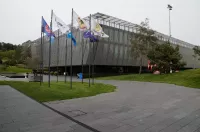
FIFA F d ration Internationale de Football Association is the...
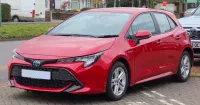
A car also known as an automobile is a wheeled...
Burkina Faso a landlocked West African nation shares borders with...
Trending
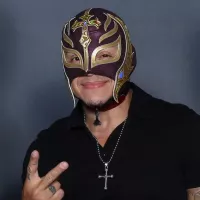
9 months ago Rey Mysterio Supports Son Dominik's Wrestling Career, Wrestlemania and Intercontinental Title Aspirations.
8 months ago Hilary Swank Inspires Chapman University's Class of 2025 Graduates with Encouraging Speech.
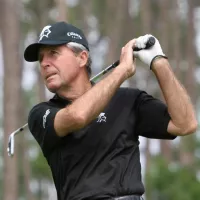
5 months ago Gary Player critiques Jordan Spieth's golf swing, despite calling him 'best golfer'.

2 months ago Kristi Noem's deportation flight decision faced scrutiny after judge's order, DOJ reveals call.
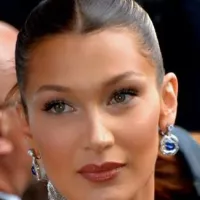
2 months ago Bella Hadid stuns in daring Orebella ad and sheer floral dress.

Tyrese Kendrid Maxey known as The Franchise and Mad Max is a professional basketball player currently with the Philadelphia ers...
Popular

Thomas Douglas Homan is an American law enforcement officer who...

XXXTentacion born Jahseh Dwayne Ricardo Onfroy was a controversial yet...

Martin Luther King Jr was a pivotal leader in the...

William Franklin Graham III commonly known as Franklin Graham is...

Jupiter is the fifth and largest planet from the Sun...

Instagram is a photo and video-sharing social networking service owned...

